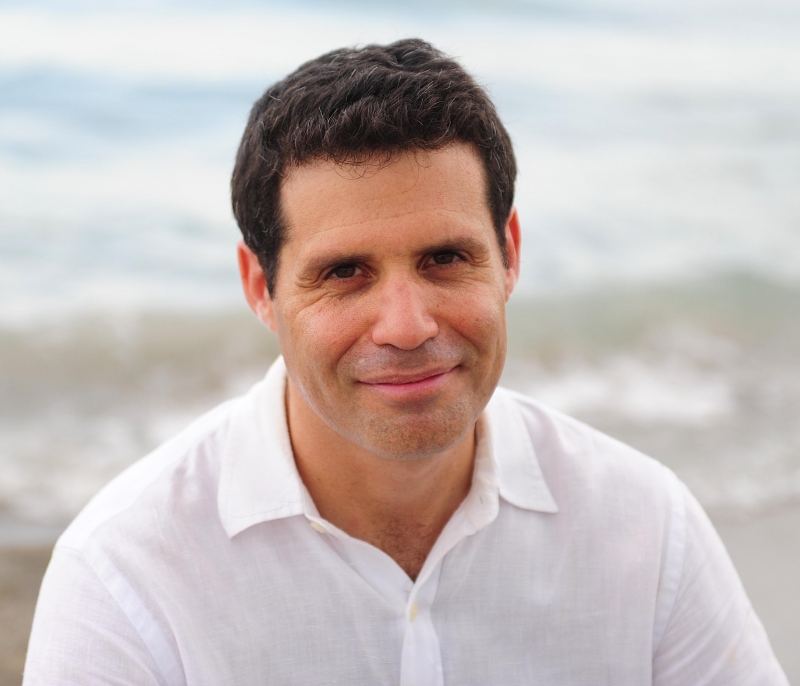Relating to God
Relating to God

Once in a while, a young student makes a statement that is supposed to leave me trembling, “I don’t believe in God,” they say, waiting for my response. Normally, they are surprised, if not disappointed with my nonchalant reaction. “Tell me more,” I encourage them. Most of the time they jump straight to the real purpose of the conversation, explaining their irrefutable deduction that since they believe that God does not exist, they should be allowed to drop out of Religious School and stop their B’nei Mitzvah lessons. Their disappointment with me grows even deeper when I inform them that one can be a perfectly good Jew without believing in God; hence, Bar/Bat Mitzvah is on. The other group of kids are happy to stay in Religious School but inform me that now, at the advanced age of 11, their knowledge of science and their perfection of rational thinking negates the obscure and unprovable concept of God. These conversations are fascinating and bring me great joy, but at the end I realize that it is not God who my young friends reject, but their oversimplistic idea of God. Their grandmother was sick, they asked God to make her better, but she died. Or they prayed to God for the top-of-the-line laptop for Hanukkah and got instead last year’s model (which their parents wrongly assumed would not be a noticeable difference). They are ready for and deserve a more complex view of God, to which we try to introduce them.
The children’s newly found atheism is not a problem, and perhaps even a healthy stage, in their spiritual growth. But I know too many adults, bright and well-educated, who are stuck in the same 11-year-old theology of the kind of “If there were a God, we wouldn’t have had the pandemic.” As we grow and mature, our education, life experience, and the people around us affect our view of most issues. But for some reason, when it comes to God, many are satisfied with the most elementary concept.
I am not planning in this short article to thoroughly deal with this important issue. Instead, as we approach the month of Elul and become more introspective in preparation for the High Holy Days, I would like to introduce you to a quote from Abraham Joshua Heschel that suggests a thoughtful and profound way with which we can relate to God as adults.
“In every man’s life there are moments when there is a lifting of the veil at the horizon of the known, opening a sight of the eternal. Each of us has at least once…experienced the momentous reality of God….But such experiences…are rare events. To some people they are like shooting stars, passing and unremembered. In others they kindle a light that is never quenched. The remembrance of that experience and the loyalty to the response of that moment are the forces that sustain our faith. In this sense, faith is faithfulness, loyalty to an event, loyalty to our response.”
After reading Heschel’s assertion (most of us need to read it more than once), I invite you to take some time and reflect on occasions that you “experienced the momentous reality of God.” If you feel comfortable, I would encourage you to share your experience with me as well.
Tue, October 28 2025
6 Cheshvan 5786
Upcoming Events
-
Tuesday ,
OctOctober 28 , 2025Choir
Tuesday, Oct 28th 6:30p to 7:30p
-
Wednesday ,
OctOctober 29 , 2025Mah Jongg
Wednesday, Oct 29th 1:00p to 4:00p
-
Wednesday ,
OctOctober 29 , 2025Adult Ed: Tough Conversations
Wednesday, Oct 29th 6:30p to 8:00p
-
Thursday ,
OctOctober 30 , 2025Canasta
Thursday, Oct 30th 1:00p to 3:30p
-
Friday ,
OctOctober 31 , 2025Shabbat Services
Friday, Oct 31st 6:30p to 7:30p
-
Saturday ,
NovNovember 1 , 2025Men's Club Weekly Walk & Brunch
Shabbat, Nov 1st 9:30a to 11:00a
-
Monday ,
NovNovember 3 , 2025Men's Monday Weekly Lunch
Monday, Nov 3rd 12:00p to 2:00p
-
Tuesday ,
NovNovember 4 , 2025Yoga with Yael
Tuesday, Nov 4th 10:00a to 11:00a
-
Tuesday ,
NovNovember 4 , 2025Choir
Tuesday, Nov 4th 6:30p to 7:30p
-
Wednesday ,
NovNovember 5 , 2025Mah Jongg
Wednesday, Nov 5th 1:00p to 4:00p
Update this content.
Come Together
Something meaningful and dynamic is happening here at Temple Beth Am. It springs from the warmth of our welcome and the energy of our actions. We call it: Kulanu - All of Us Together.
Join UsUpcoming Events
-
Tuesday ,
OctOctober 28 , 2025Choir
Tuesday, Oct 28th 6:30p to 7:30p
-
Wednesday ,
OctOctober 29 , 2025Mah Jongg
Wednesday, Oct 29th 1:00p to 4:00p
-
Wednesday ,
OctOctober 29 , 2025Adult Ed: Tough Conversations
Wednesday, Oct 29th 6:30p to 8:00p
-
Thursday ,
OctOctober 30 , 2025Canasta
Thursday, Oct 30th 1:00p to 3:30p
-
Friday ,
OctOctober 31 , 2025Shabbat Services
Friday, Oct 31st 6:30p to 7:30p
Privacy Settings | Privacy Policy | Member Terms
©2025 All rights reserved. Find out more about ShulCloud

